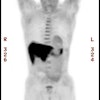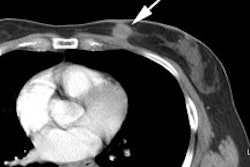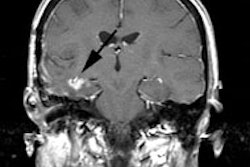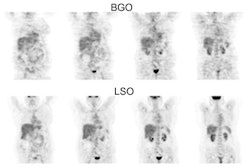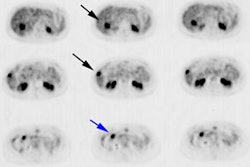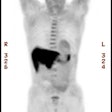J Nucl Med 2001 Sep;42(9):1334-7
Impact of whole-body 18F-FDG PET on staging and managing patients with breast
cancer: the referring physician's perspective.
Yap CS, Seltzer MA, Schiepers C, Gambhir SS, Rao J, Phelps ME, Valk PE, Czernin
J.
FDG PET has emerged as an important clinical imaging modality for diagnosing and
staging cancer. However, the impact of FDG PET on staging and managing patients
with breast cancer from the referring physician's point of view is unknown.
METHODS: The referring physicians of 160 breast cancer patients received
standardized questionnaires inquiring if and how PET findings altered their
patient's stage and their clinical management decisions. Management changes were
classified as intermodality if the change was from one modality to another
(e.g., medical to surgical, surgical to radiation, medical to no treatment, and
vice versa) or as intramodality if the change was within the same modality
(e.g., altered medical or radiotherapy approach). RESULTS: Fifty of the 160
surveys were completed (31% response rate). PET changed the clinical stage in
36% of patients (28% upstaged, 8% downstaged) and resulted in intermodality
changes in 28% of patients and intramodality changes in 30% of patients.
CONCLUSION: The results of this prospective survey show that FDG PET has a major
impact on the management of breast cancer patients, influencing both clinical
stage and management in more than 30% of patients.
